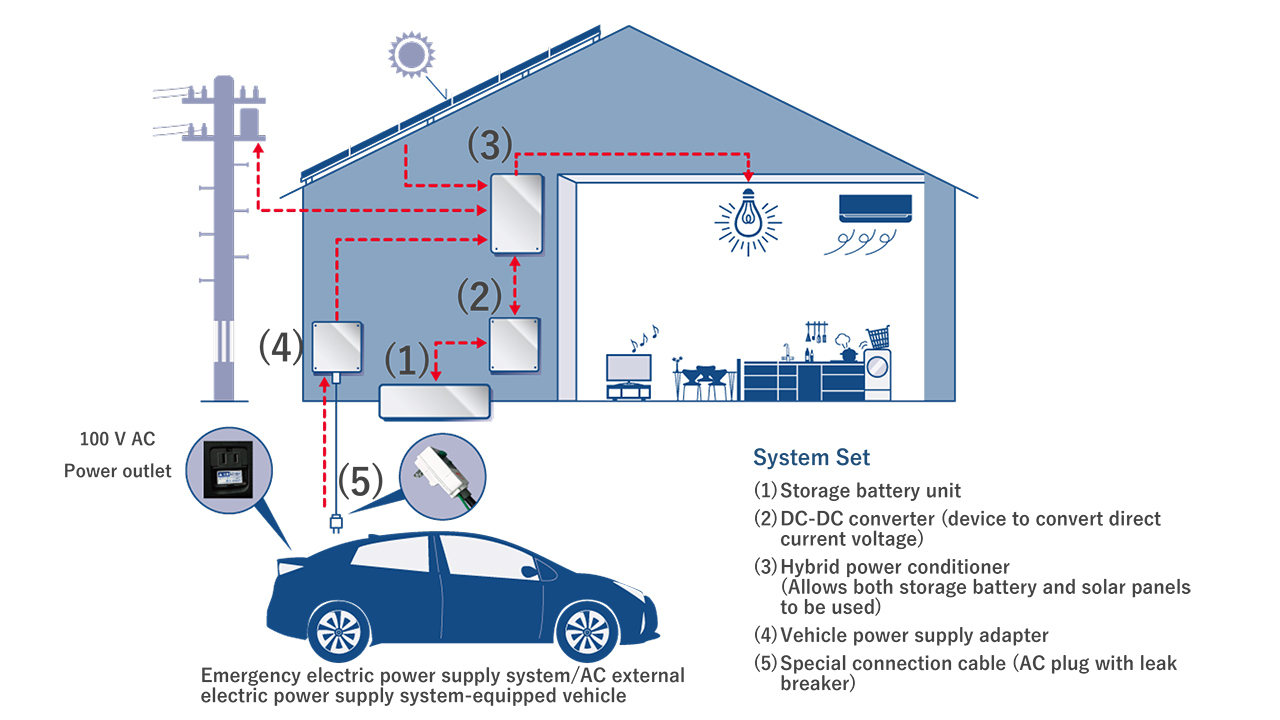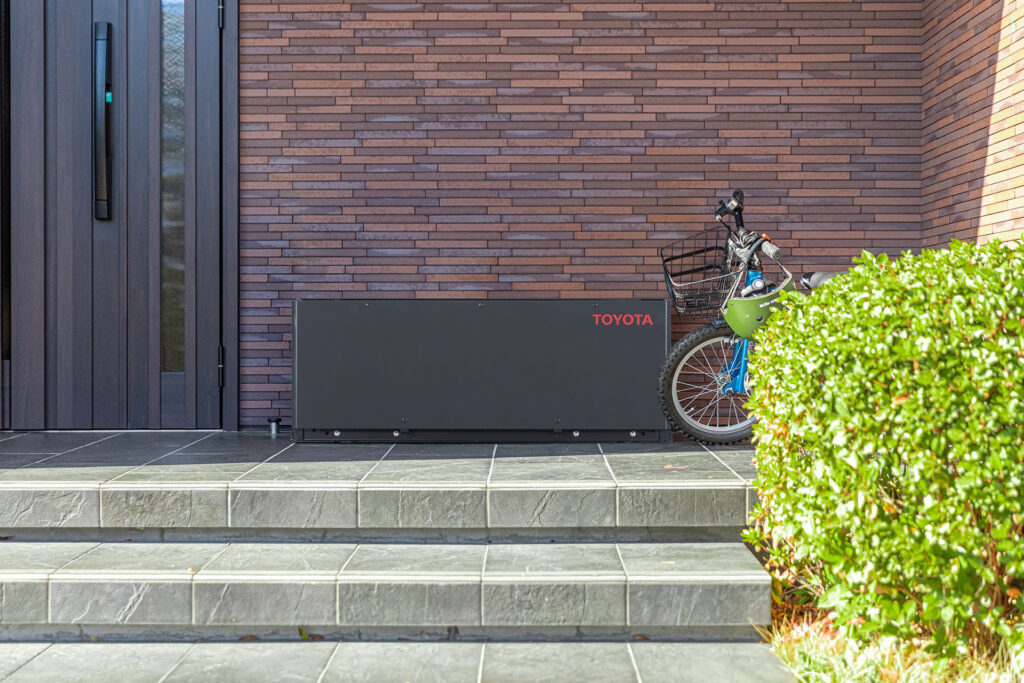If Tesla can do it, Toyota can do it too. That’s at least partly the thinking behind the Japanese auto-maker launching its very own home-based battery storage system. You know, the sort of thing we all need in our homes to avoid load shedding?
But, unlike the Powerwall, it’s not bound to turn up in South Africa any time soon. The O-Uchi Kyuden System, as Toyota calls it, is designed to run your home on battery power in case of emergencies. All of the bits and pieces that make it up, though, are a product of the company’s EV tech.
Toyota’s IoT thing
 The O-Uchi Kyuden System is a surprisingly compact 142kg battery with a capacity rated up to 8.7kWh. It’s got a 5.5kWh output, which is enough to run an entire house for most of a day. But that’s not where Toyota’s system stops. Ideally, the setup included solar panels, as well as a switching system that lets the solar/battery combination take over in the event of power interruption. Which, in South Africa, can happen with very little notice.
The O-Uchi Kyuden System is a surprisingly compact 142kg battery with a capacity rated up to 8.7kWh. It’s got a 5.5kWh output, which is enough to run an entire house for most of a day. But that’s not where Toyota’s system stops. Ideally, the setup included solar panels, as well as a switching system that lets the solar/battery combination take over in the event of power interruption. Which, in South Africa, can happen with very little notice.
In other words, Toyota’s vision for Japanese homes is a hybrid power system. Electricity can be drawn from the grid, when it’s available, or from battery storage or solar panels when it’s not. There’s even a cool feature where EVs can be used to top up the house battery, in the event of darkness. That should keep the lights on for longer, provided it’s not dark for nuclear winter reasons.
The O-Uchi Kyuden System is exactly the sort of thing South Africans need to keep the lights on, and it’s exactly what we won’t get. For some time at least. The system is available for pre-order in Japan, with production units expected in August this year. Pricing also isn’t known, but you can expect to shell out a fair bit for nearly 150kg of EV battery and a set of solar panels.




